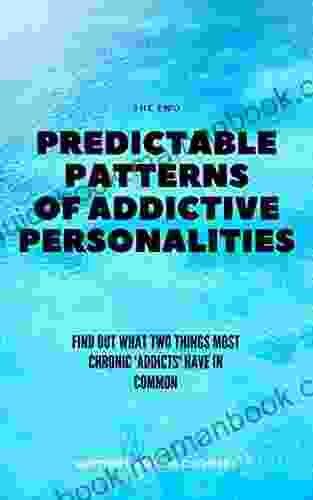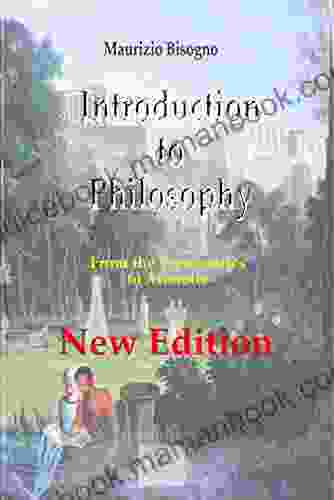Unveiling the Two Predictable Patterns of Addictive Personalities: Understanding the Complexities of Substance Abuse

Addiction, a multifaceted and pervasive issue, has captivated the attention of researchers, clinicians, and individuals alike for centuries. Understanding the psychological underpinnings of addictive behaviors is crucial for developing effective prevention and treatment strategies. Among the various approaches to understanding addiction, the identification of predictable patterns among addictive personalities has emerged as a valuable tool.
Pattern 1: The Impulsive-Compulsive Type
5 out of 5
| Language | : | English |
| File size | : | 2251 KB |
| Text-to-Speech | : | Enabled |
| Enhanced typesetting | : | Enabled |
| Word Wise | : | Enabled |
| Print length | : | 11 pages |
| Lending | : | Enabled |
| Screen Reader | : | Supported |
Individuals exhibiting the impulsive-compulsive pattern of addiction are often characterized by a lack of impulse control, difficulty regulating emotions, and a proneness to sensation-seeking behaviors. Their impulsive nature often leads to risky and harmful decisions, including excessive substance use.
Key traits of the impulsive-compulsive type include:
- Strong cravings and intense urges: These individuals experience overwhelming cravings for substances, which can become irresistible and lead to compulsive use.
- Poor impulse control: Difficulty resisting temptations and controlling impulsive behaviors, such as excessive spending or gambling.
- High novelty-seeking: A constant pursuit of new and thrilling experiences, which can lead to substance use as a means of seeking stimulation.
- Emotional dysregulation: Difficulty managing emotions, with a tendency to respond to stress and negative emotions with substance use.
Individuals with the impulsive-compulsive pattern of addiction often struggle with co-occurring mental health conditions, such as anxiety disorders, depression, or personality disorders. These conditions can contribute to the severity of the addiction and make treatment more challenging.
Pattern 2: The Anxiety-Driven Type
In contrast to the impulsive-compulsive type, individuals exhibiting the anxiety-driven pattern of addiction use substances primarily to alleviate anxiety or cope with negative emotions.
Key traits of the anxiety-driven type include:
- Chronic anxiety and stress: Persistent feelings of worry, fear, and tension that drive substance use as a coping mechanism.
- Emotional avoidance: Attempting to suppress or escape unpleasant emotions through substance use, leading to a cycle of dependency.
- Low self-esteem and self-confidence: Feeling inadequate or unworthy, which can contribute to using substances to boost self-image or reduce feelings of shame.
- Social isolation and withdrawal: Avoiding social situations or relationships due to anxiety, leading to increased isolation and loneliness.
Individuals with the anxiety-driven pattern of addiction may also develop co-occurring mental health conditions, such as generalized anxiety disorder, social anxiety disorder, or depression. These conditions exacerbate the anxiety and negative emotions that drive substance use, further complicating the addiction.
Implications for Treatment and Prevention
Understanding the predictable patterns of addictive personalities has significant implications for treatment and prevention efforts. Tailoring interventions to the specific needs of each pattern can improve treatment outcomes and reduce the risk of relapse.
For the impulsive-compulsive type, treatment plans should focus on:
- Impulse control training: Techniques to help individuals resist cravings, manage urges, and avoid risky behaviors.
- Cognitive behavioral therapy (CBT): Identifying and challenging negative thought patterns and behaviors that contribute to addiction.
- Medication: Prescribing medications to reduce cravings, control impulses, and address co-occurring mental health conditions.
For the anxiety-driven type, treatment plans should focus on:
- Anxiety management techniques: Developing strategies to cope with anxiety and stress without resorting to substance use.
- Mindfulness-based interventions: Promoting present moment awareness and reducing emotional reactivity.
- Motivational interviewing: Encouraging individuals to explore their motivation for change and develop a plan for recovery.
- Social support groups: Providing a safe and supportive environment for individuals to connect with others facing similar challenges.
Prevention efforts should focus on educating individuals about the risks of addiction and promoting healthy coping mechanisms for managing stress and negative emotions. These efforts can include:
- School-based programs: Educating students about addiction, substance abuse, and mental health.
- Community outreach programs: Providing support and resources to individuals at risk of developing addiction.
- Media campaigns: Raising awareness about the dangers of addiction and promoting help-seeking behavior.
The identification of predictable patterns among addictive personalities has significantly advanced our understanding of this complex disorder. By tailoring treatment and prevention strategies to the specific needs of each pattern, we can improve outcomes, reduce the risk of relapse, and empower individuals to regain control over their lives.
Understanding the underlying psychological mechanisms of addictive behaviors is an ongoing pursuit that requires collaboration between researchers, clinicians, and individuals with personal experiences of addiction. Through continued exploration and innovation, we can pave the way for more effective and compassionate approaches to addressing this pervasive issue.
Additional Resources:
- The Two Predictable Patterns of Addictive Personalities: Impulsive-Compulsive and Anxiety-Driven
- Understanding Drug Use and Addiction
- Addiction
5 out of 5
| Language | : | English |
| File size | : | 2251 KB |
| Text-to-Speech | : | Enabled |
| Enhanced typesetting | : | Enabled |
| Word Wise | : | Enabled |
| Print length | : | 11 pages |
| Lending | : | Enabled |
| Screen Reader | : | Supported |
Do you want to contribute by writing guest posts on this blog?
Please contact us and send us a resume of previous articles that you have written.
 Top Book
Top Book Novel
Novel Fiction
Fiction Nonfiction
Nonfiction Literature
Literature Paperback
Paperback Hardcover
Hardcover E-book
E-book Audiobook
Audiobook Bestseller
Bestseller Classic
Classic Mystery
Mystery Thriller
Thriller Romance
Romance Fantasy
Fantasy Science Fiction
Science Fiction Biography
Biography Memoir
Memoir Autobiography
Autobiography Poetry
Poetry Drama
Drama Historical Fiction
Historical Fiction Self-help
Self-help Young Adult
Young Adult Childrens Books
Childrens Books Graphic Novel
Graphic Novel Anthology
Anthology Series
Series Encyclopedia
Encyclopedia Reference
Reference Guidebook
Guidebook Textbook
Textbook Workbook
Workbook Journal
Journal Diary
Diary Manuscript
Manuscript Folio
Folio Pulp Fiction
Pulp Fiction Short Stories
Short Stories Fairy Tales
Fairy Tales Fables
Fables Mythology
Mythology Philosophy
Philosophy Religion
Religion Spirituality
Spirituality Essays
Essays Critique
Critique Commentary
Commentary Glossary
Glossary Bibliography
Bibliography Index
Index Table of Contents
Table of Contents Preface
Preface Introduction
Introduction Foreword
Foreword Afterword
Afterword Appendices
Appendices Annotations
Annotations Footnotes
Footnotes Epilogue
Epilogue Prologue
Prologue Stephen Llewelyn
Stephen Llewelyn Alfonso Segura
Alfonso Segura Maurizio Bisogno
Maurizio Bisogno Dominic Walters
Dominic Walters Bestwriters Club
Bestwriters Club Raquel M Linhares
Raquel M Linhares Tanya Markul
Tanya Markul Joyce Moore Gaulden
Joyce Moore Gaulden Speedy Publishing Llc
Speedy Publishing Llc Mark Kistler
Mark Kistler Sande Boritz Berger
Sande Boritz Berger Julissa Cardenas
Julissa Cardenas Rae Snape
Rae Snape Melissa Strnad
Melissa Strnad Francis Turner Palgrave
Francis Turner Palgrave Kevin Hardman
Kevin Hardman Geoffrey Lancaster
Geoffrey Lancaster Costanza Casullo
Costanza Casullo Lori Schafer
Lori Schafer Leeanna Morgan
Leeanna Morgan
Light bulbAdvertise smarter! Our strategic ad space ensures maximum exposure. Reserve your spot today!
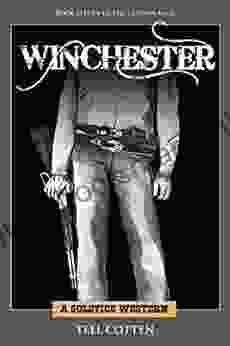
 Anthony BurgessWinchester: The Landon Saga 11 - Unraveling the Dark Past and Supernatural...
Anthony BurgessWinchester: The Landon Saga 11 - Unraveling the Dark Past and Supernatural... Chuck MitchellFollow ·6.9k
Chuck MitchellFollow ·6.9k Lucas ReedFollow ·2k
Lucas ReedFollow ·2k Cortez ReedFollow ·10k
Cortez ReedFollow ·10k Victor HugoFollow ·12.1k
Victor HugoFollow ·12.1k Derek CookFollow ·13.6k
Derek CookFollow ·13.6k Chadwick PowellFollow ·10.9k
Chadwick PowellFollow ·10.9k Jordan BlairFollow ·11k
Jordan BlairFollow ·11k Jace MitchellFollow ·19.9k
Jace MitchellFollow ·19.9k
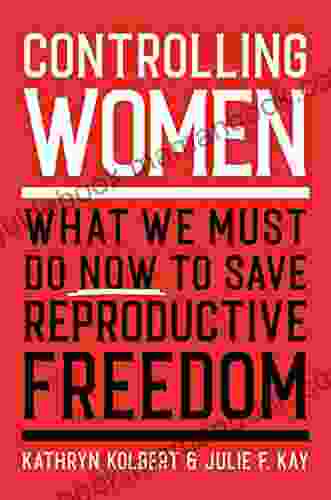
 Leslie Carter
Leslie CarterWhat We Must Do Now To Save Reproductive Freedom
Roe v. Wade, the landmark...
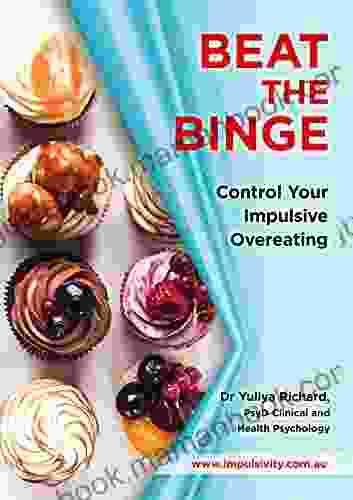
 Cade Simmons
Cade SimmonsThe Unbreakable Bond: Unveiling the Connection Between...
In the realm of...

 Roy Bell
Roy BellFull Contact Chapter Five: The Final Chapter of the Hatch...
In this gripping to the Hatch saga, we...
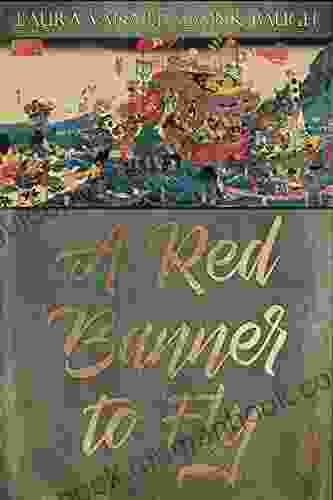
 Fred Foster
Fred FosterUnveiling the Tale of the Genpei Wars: A Comprehensive...
Deep within the annals of Japanese history,...

 Jaden Cox
Jaden CoxFerguson in Black and White: A Profound Examination of...
The Ferguson tragedy, sparked by the fatal...
5 out of 5
| Language | : | English |
| File size | : | 2251 KB |
| Text-to-Speech | : | Enabled |
| Enhanced typesetting | : | Enabled |
| Word Wise | : | Enabled |
| Print length | : | 11 pages |
| Lending | : | Enabled |
| Screen Reader | : | Supported |


